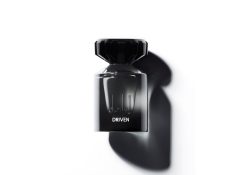Our skin is our biggest organ, the safety blanket separating our delicate insides from the world. It comes as no surprise that our mind-body-skin relationship is a crucial one
Consider this: your skin reflects your emotional state. Stressing and feeling anxious causes breakouts, not getting enough sleep makes your skin dull and getting a rush of embarrassment or panic causes blotchiness and flushing. But it actually goes much deeper than just, ahem, skin deep.
The Mind-Skin Connection
Psychodermatology is a new medical sub-specialty, not widely recognised or practised yet, but definitely relevant. It delves deeper into the synthesis of psychiatry and dermatology, as well as the interdependence between the mind and body, treating the body as a whole instead of the mind and skin as two separate entities.
We know that chemical messages and receptors in the brain and nervous system (for example, neuropeptides) communicate directly with our skin cells. Furthermore, our skin contains complex layers and components, such as immune system cells that ward off bacteria and viruses; blood vessels and sweat glands to regulate body temperature; and cells that convert sun exposure into vitamin D.
The problem, however, is that most of the time, our biggest skin issues stem from a psychological root, yet most people who suffer from that issue won’t realise it.
Some skin problems are purely physiological, but can be exacerbated by emotional factors – the biggest being stress. These include acne, dermatitis, eczema, rosacea and psoriasis. When stress comes into play, the conditions often become worse, causing you even more stress. Talk about snowballing.
Taking it further, secondary psychiatric skin issues, such as severe acne or vitiligo (loss of pigment in the skin) can cause feelings of inferiority, anxiety and depression. And again, these feelings can cause the condition to get worse.
Someone with a primary psychiatric condition stemming from a mental-health issue can also start experiencing extreme skin-related disorders such as delusional parasitosis (the belief that your body is infected with parasites), body dysmorphic disorder and even self-inflicted skin damage.
How To Deal
Aside from a proper skincare regime, having a balanced diet, exercising regularly and getting enough sleep, the best thing you can do to help your skin is simply relax. Yes, you say ‘it’s not that easy’, but it really is. By making some time for yourself and consciously focusing on your breathing and allowing your muscles to relax, your heart rate will slow down and your stress hormone (cortisol, specifically) levels will drop.
Find what works for you, whether it’s reading a book, meditating, listening to music or a mindfulness app, playing with your kids or going for a run. You need to put yourself in a positive headspace. It’s also a good idea to start enjoying your products and skincare routine. Why, you may ask? Because it’s a powerful way of relaxing and practising much-needed TLC. Instead of simply scrubbing away and slapping on some moisturiser, take an extra two minutes to massage your face – whether it’s by using an oil cleanser or nourishing moisturiser. Smell the product, inhale it deeply, close your eyes and press firmly on to any areas that feel tense, like your jawline, next to your nose, temples and forehead.
It’s also important to respect your skin and give it everything it needs, when it needs it. It’s great to stick to a consistent routine, but sometimes your skin is crying out for more, or less. When your skin’s feeling particularly parched, ditch the anti-acne treatment you apply religiously in fear of waking up to a pimple, and do a hydrating mask or a luxurious oil. Or if your skin looks dull and in need of a little pick-me-up, a gentle scrub and vitamin-boosting serum will do just the trick.

For more skin wellness tips, page through your Arpil issue of Fitlife





